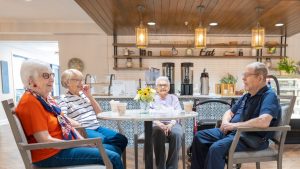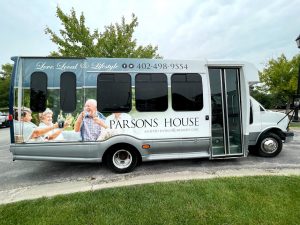5 Tips for Finding the Right Omaha Assisted Living Community
When a person reaches a certain age, it’s likely that medical needs and costs increase. You or your loved one might need the help of professionals that can take care of basic needs, hygiene, and ongoing care.
Elderly people have varying degrees of need, and most would like to live somewhere that offers in-house care when they need it.
That’s where assisted living homes come into play. In the United States, the assisted living field holds a more than $87 billion market value.
If you live in Omaha, you have plenty of options. Here are some tips on finding the best Omaha assisted living arrangement for your needs and your life.
1. Check Out the Floorplan and Layout
If you’re thinking of moving into an assisted living facility, it’s important to get a feel for both the floor plan and layout. Checking on these details lets you know what kind of space you’ll have so that you can plan accordingly.
Browse the facility online so that you can look at common area and room floorplans, square footage breakdowns, and descriptions. Most facilities have multiple options that you can check out, and some even feature more than one bedroom. Do your due diligence in searching for the right place so that your choice in assisted living facility improves your quality of life.
2. Visit the Assisted Living Community in Person
Getting to know the floor plan and layout of assisted living communities is necessary, but you won’t know what you’re getting until you visit it in person. Schedule a visit to browse the amenities, make sure that the decor is well-kept, and choose a community that is kept clean at all times.
You won’t know how well a community is kept up until you see it in person since pictures and videos on the site can sometimes be misleading.
3. Get to Know the Local Area
If you’re looking for a senior living community in Omaha, make sure that you’re also familiar with the local and surrounding area. Many of these facilities are situated in areas that have plenty of greenery and fresh air. This allows people to spend time outdoors to lower their stress levels, heighten their mood, and make sure that their blood pressure remains healthy.
Consider which part of the city you’d like to live in, and what types of businesses, services, and attractions are nearby. Some areas of Omaha that you might consider include:
- Downtown
- Joslyn Castle
- Morton Meadows
- Rockbrook
- Elmwood Park
- Gifford Park
- Midtown Crossing
When you visit the assisted living community, spend time browsing the local area and checking out the surrounding neighborhood as well.
4. Consider Their Services and Amenities
The services and amenities are arguably the most important details to consider when you’re researching senior living communities. You need the medical services that will take care of your health for years to come, along with amenities that make it a comfortable and prosperous place to live.
Some amenities that you might look for in an assisted living community include:
- Gyms and fitness centers
- Tennis courts and golf
- Spas, massage therapy, and beauty salons
- Swimming pools and hot tubs
- Restaurants and high-quality dining options
- Laundry services and professional cleaning
- Social events and community activities
You can compare these services and amenities between a few different companies to prioritize what you want most, and to find a professional that can provide it.
5. Research the Staff and Professionals
Do your due diligence when shopping around for communities that will also give you access to the best professionals. You should never have to second guess whether you’re getting optimal medical care when you live in one of these facilities.
Research the medical director of the community and find out how many doctors and nurses they have on staff. Check out what kinds of specialties they have as well to make certain that you or your loved one gets the necessary care.
About 55 million people today live with dementia. This is why so many people require memory care services when they enroll in an assisted living community. You might also need access to other professionals, such as:
- Physical therapists and pain management professionals
- Chiropractors and professionals that offer acupuncture and other alternative services
- Hearing professionals and audiologists
- Dental professionals for dentures and standard oral healthcare
- Massage therapists
Take the time to find out what standard of care they provide, and check out their grades and rating in the industry. In addition to looking into the Better Business Bureau (BBB), find out if they’ve been sued and whether they have formal complaints about care or sanitary practices.
Seek referrals from people you know that have also lived in the assisted living facility so that you can gain insight from their experiences and opinions about the level of care they received.
Find the Perfect Omaha Assisted Living Situation
The points above are worthwhile when you need to find a quality Omaha assisted living arrangement. This type of care is an investment in your life as a whole and sets the course for how you live for the next several years and the rest of your life.
Parsons House on Eagle Run is happy to help you or your loved one out when you’re looking for a healthy and comfortable living arrangement. We provide some of the best services around to Nebraska residents and would love to show you why we’re trusted and renowned. Use our web form to contact us or give us a call at (402)498-9554.




